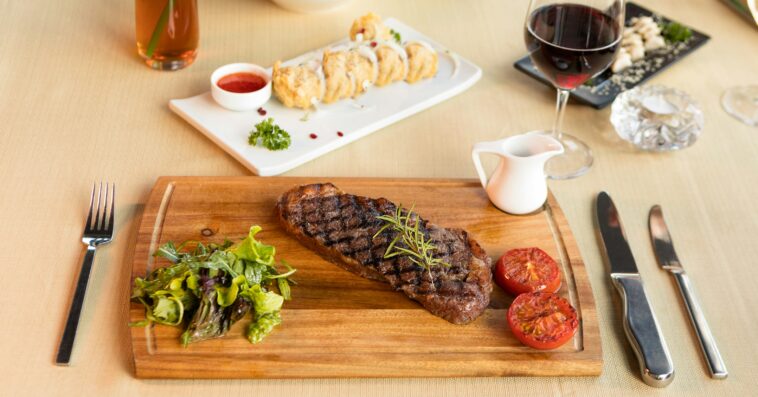Introduction:
Mexican cuisine is a vibrant tapestry woven with rich flavors, colorful ingredients, and centuries of cultural influence. At the heart of this culinary landscape lies the humble yet iconic taco. Originating in Mexico, tacos have evolved from a simple street food to a global sensation, captivating taste buds around the world. In this article, we embark on a journey to unravel the history, diversity, and cultural significance of Mexican tacos.
The History of Tacos:
To understand the essence of tacos, one must delve into their intriguing history. The roots of tacos can be traced back to the indigenous peoples of Mesoamerica, such as the Aztecs and Mayans, who inhabited the region that is present-day Mexico. These ancient civilizations relied on corn as a staple food, cultivating it in abundance. They would flatten the corn dough into small, round patties known as “tlaxcalli,” which served as the precursor to modern-day tortillas.
The Spanish conquest of Mexico in the 16th century brought about a culinary fusion that would shape the future of Mexican cuisine. The Spaniards introduced various ingredients, including beef, pork, chicken, and dairy products, which melded with the indigenous flavors to create a diverse culinary landscape. It is believed that the term “taco” originated from the Spanish word “taco,” meaning “plug” or “wad,” referring to the way the filling is inserted into the tortilla.
Traditional Tacos:
Traditional Mexican tacos are a testament to the country’s rich culinary heritage, reflecting the diverse regional cuisines and local ingredients. While there are countless variations, some of the most beloved traditional tacos include:
Tacos al Pastor: Originating from central Mexico, tacos al pastor feature thinly sliced pork marinated in a blend of spices, such as achiote, and roasted on a vertical spit. The meat is typically served on a corn tortilla and garnished with pineapple, onions, and cilantro.
Tacos de Asada: Hailing from northern Mexico, tacos de asada showcase grilled beef, usually skirt steak or flank steak, seasoned with a mix of spices and citrus juices. The succulent meat is thinly sliced and served on a warm tortilla, accompanied by salsa, guacamole, and fresh lime.
Tacos de Pescado: Along the coastal regions of Mexico, tacos de pescado, or fish tacos, are a popular delicacy. Fresh fish, such as cod or mahi-mahi, is battered and fried to crispy perfection, then nestled in a soft corn tortilla and topped with shredded cabbage, creamy chipotle sauce, and a squeeze of lime.
Tacos de Birria: Hailing from the state of Jalisco, tacos de birria feature tender, slow-cooked meat, traditionally goat or beef, simmered in a flavorful broth infused with spices like cloves, cinnamon, and bay leaves. The meat is shredded and served in a corn tortilla, accompanied by a side of consommé for dipping.
Modern Interpretations:
While traditional tacos hold a special place in Mexican cuisine, modern interpretations have also emerged, showcasing innovative flavors and culinary techniques. From gourmet food trucks to upscale restaurants, chefs are putting their own spin on this beloved dish, incorporating global influences and unconventional ingredients.
Korean BBQ Tacos: Inspired by the fusion of Korean and Mexican flavors, Korean BBQ tacos feature marinated beef or pork, grilled to perfection and served on a tortilla with kimchi, pickled vegetables, and a drizzle of spicy gochujang sauce.
Vegan Tacos: With the rising popularity of plant-based diets, vegan tacos have become a staple on many menus. These tacos feature creative fillings such as grilled portobello mushrooms, black beans, roasted sweet potatoes, and avocado, topped with dairy-free sauces and fresh herbs.
Sushi Tacos: Blending the best of Japanese and Mexican cuisines, sushi tacos offer a unique twist on the traditional taco. Crispy wonton shells are filled with sushi rice, fresh sashimi-grade fish, avocado, and spicy mayo, creating a delightful fusion of flavors and textures.
Cultural Significance:
Beyond its culinary appeal, the taco holds deep cultural significance in Mexican society. It is not merely a meal but a social experience, bringing people together to savor delicious food and celebrate shared heritage. Whether enjoyed at a bustling street corner taqueria or a festive family gathering, tacos serve as a symbol of unity, community, and cultural pride.
Conclusion:
In conclusion, Mexican tacos are more than just a dish – they are a culinary masterpiece that embodies the soul of Mexico. From their ancient origins to their modern-day interpretations, tacos continue to captivate food lovers worldwide with their tantalizing flavors, diverse fillings, and cultural significance. So, the next time you bite into a delicious taco, take a moment to appreciate the centuries of history and tradition that have shaped this beloved culinary treasure.

